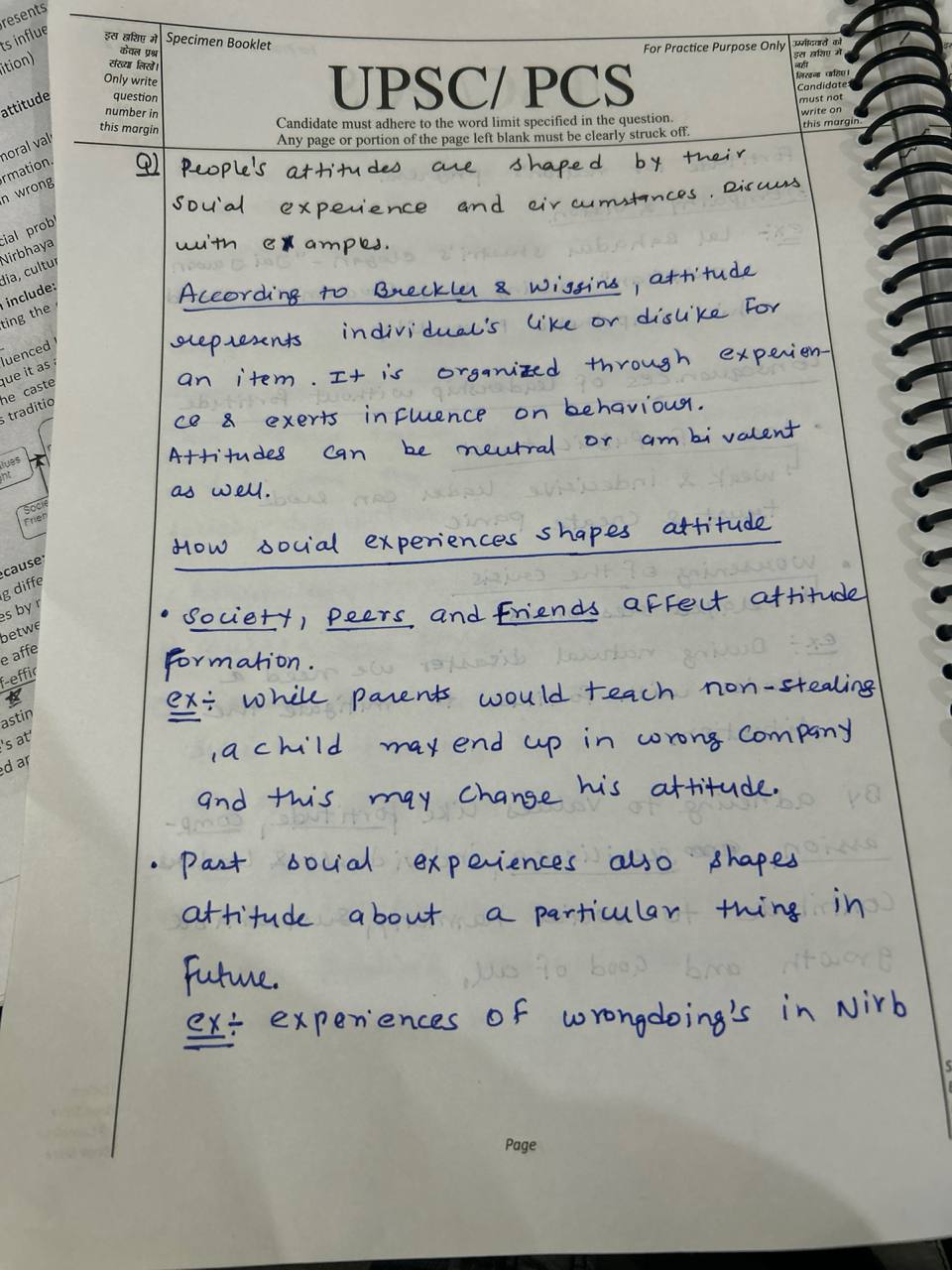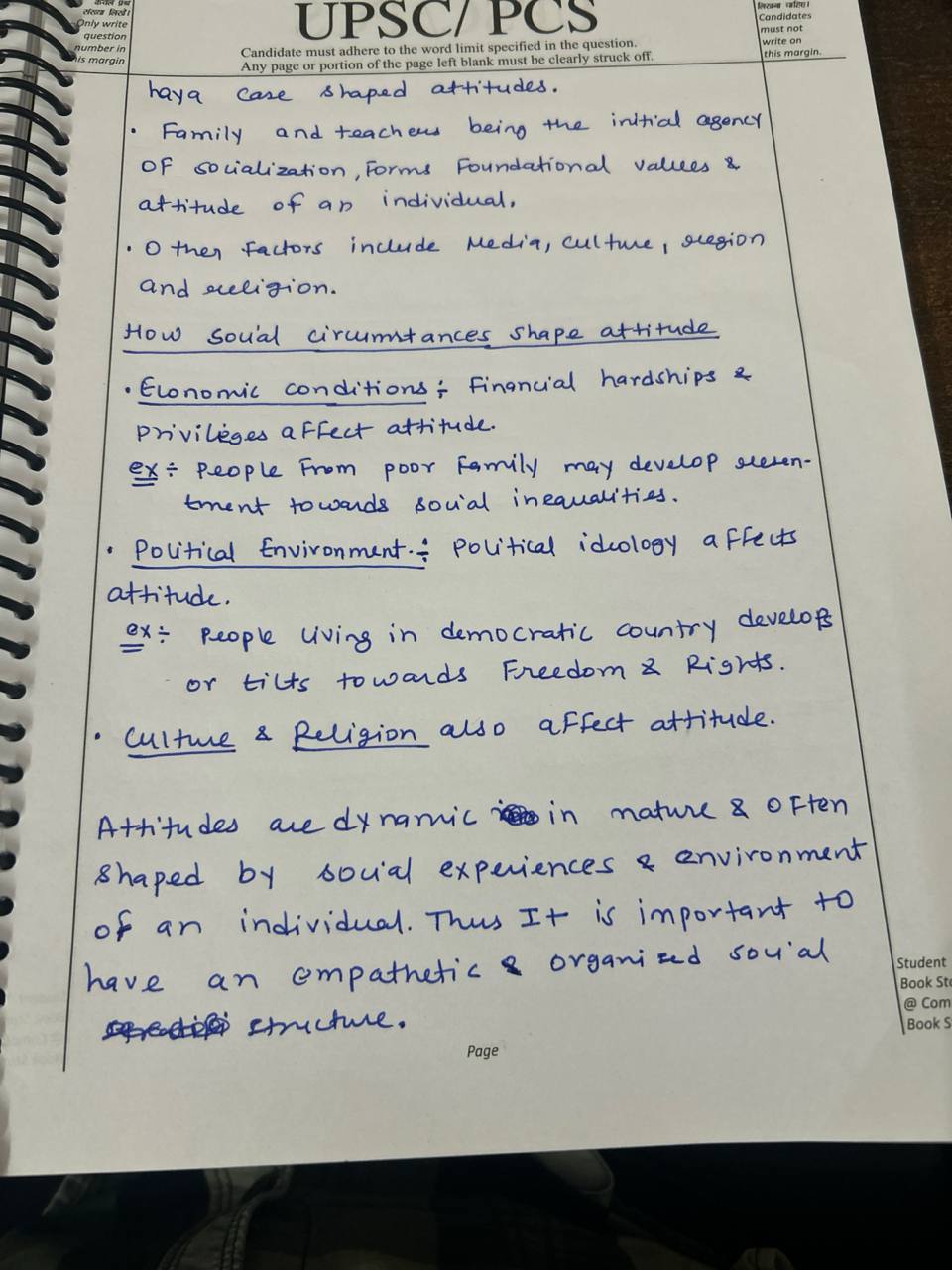How can the increasing prevalence of remote work and virtual communication possibly affect interpersonal relationships and mental health in the long term?
Differentiating Between Key Concepts 1. Tolerance vs. Compassion Tolerance refers to accepting and respecting differences in others, even if one does not necessarily agree with them. For instance, the Supreme Court of India showed tolerance by upholding the rights of diverse communities, including tRead more
Differentiating Between Key Concepts
1. Tolerance vs. Compassion
- Tolerance refers to accepting and respecting differences in others, even if one does not necessarily agree with them. For instance, the Supreme Court of India showed tolerance by upholding the rights of diverse communities, including those in the Transgender Persons (Protection of Rights) Act, 2019.
- Compassion, on the other hand, involves empathy and a desire to alleviate suffering. An example is the COVID-19 relief efforts, where civil servants and NGOs showed compassion by providing medical aid and support to affected individuals and communities.
2. Attitude vs. Aptitude
- Attitude is a mindset or approach towards a task or situation. A positive attitude, for example, can be seen in the way IAS officers approach challenging administrative reforms with optimism and resilience.
- Aptitude refers to natural ability or skill in a particular area. For instance, mathematical aptitude is crucial for roles in financial planning or data analysis, as demonstrated by successful candidates in the Union Public Service Commission (UPSC) exams who excel in quantitative sections.
Understanding these distinctions helps in recognizing the diverse aspects of personal and professional development.
See less


The increasing prevalence of remote work and virtual communication can have mixed effects on interpersonal relationships and mental health in the long term. On the positive side, remote work offers flexibility, reducing stress from commuting and allowing for a better work-life balance. This flexibilRead more
The increasing prevalence of remote work and virtual communication can have mixed effects on interpersonal relationships and mental health in the long term.
On the positive side, remote work offers flexibility, reducing stress from commuting and allowing for a better work-life balance. This flexibility can improve mental health by providing more time for family, hobbies, and rest. Virtual communication tools also keep teams connected, enabling collaboration regardless of location.
However, there are potential downsides. Reduced face-to-face interactions can lead to feelings of isolation and loneliness, as virtual communication often lacks the depth and nuance of in-person conversations. This can weaken workplace relationships and diminish the sense of community and support among colleagues. Over time, such isolation may contribute to increased anxiety, depression, and burnout.
To mitigate these effects, it’s important to maintain regular social interactions, establish clear work-life boundaries, and prioritize mental health. Balancing remote work with opportunities for in-person connections can help preserve relationships and promote long-term mental well-being.
See less